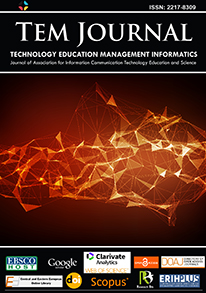Improvement of Hybrid Image Enhancement for Detection and Classification of Malaria Disease Types and Stages with Artificial Intelligence
Improvement of Hybrid Image Enhancement for Detection and Classification of Malaria Disease Types and Stages with Artificial Intelligence
Author(s): Rika Rosnelly, Bob Subhan Riza, Wahyuni Linda, Suparni Suparni, Annas Prasetio, Robbi RahimSubject(s): ICT Information and Communications Technologies
Published by: UIKTEN - Association for Information Communication Technology Education and Science
Keywords: Artificial Intelligence; Malaria; Dark Stretching; Contrast stretching; histogram equalization; dark and contrast stretching;
Summary/Abstract: Malaria is an infectious disease throughout the world where the disease is transmitted by infected female Anopheles mosquitoes. Malaria has some symptoms that are almost like COVID-19. Malaria has several other symptoms, characterized by chills, anemia, cold sweats, nausea and vomiting, and a sudden drop in blood pressure. Identification of the type of malaria begins with preprocessing, feature extraction, and classification for identification. Image improvement is part of the preprocessing stage to improve image quality so that the malaria parasite object in the image can be seen clearly. This study tries to improve the algorithm with hybrid dark and contrast stretching. Performance evaluation of malaria parasite image improvement using Mean Square Error (MSE) and Peak Signal Noise Ratio (PSNR). The results obtained with the improvement of dark hybrids and contrast stretching can improve the image quality of malaria parasite objects with MSE value = 0.0095 and PSNR value = 22.8404, compared with dark stretching, contrast stretching, histogram equalization.
Journal: TEM Journal
- Issue Year: 11/2022
- Issue No: 2
- Page Range: 535-542
- Page Count: 8
- Language: English

